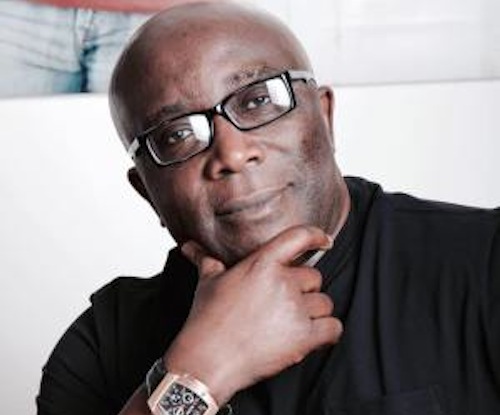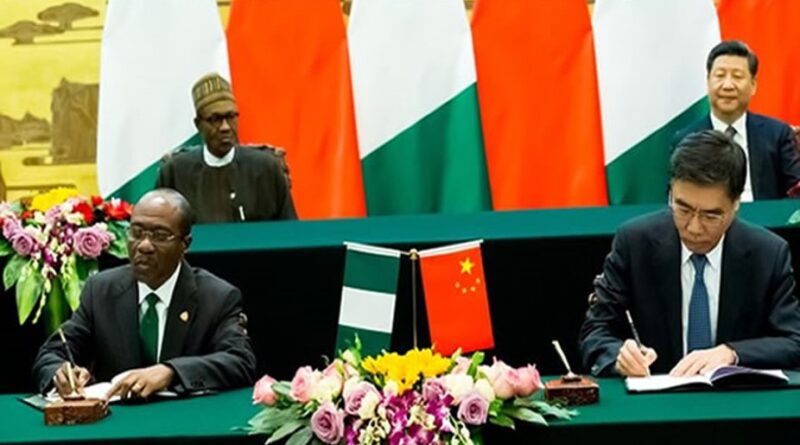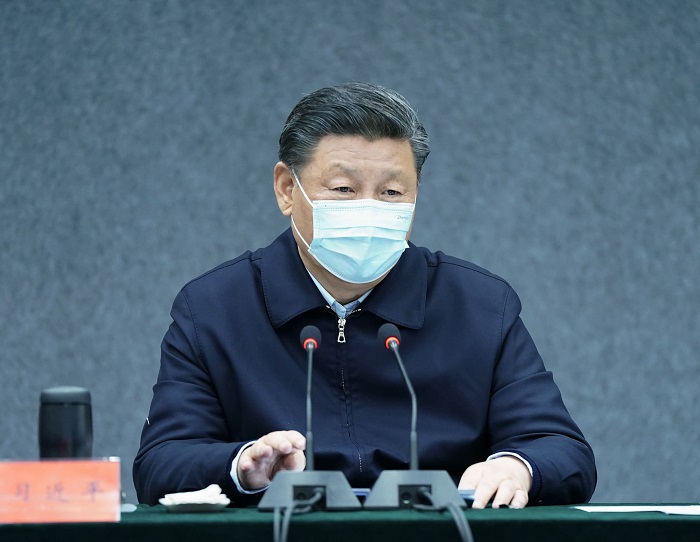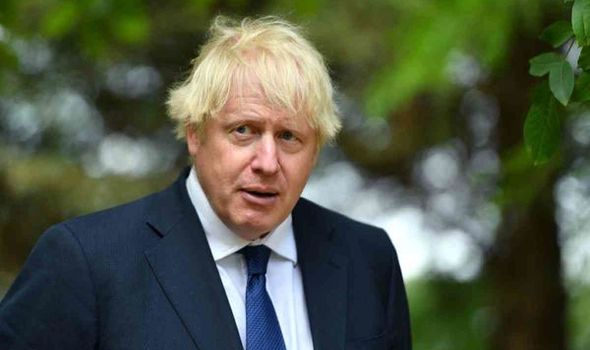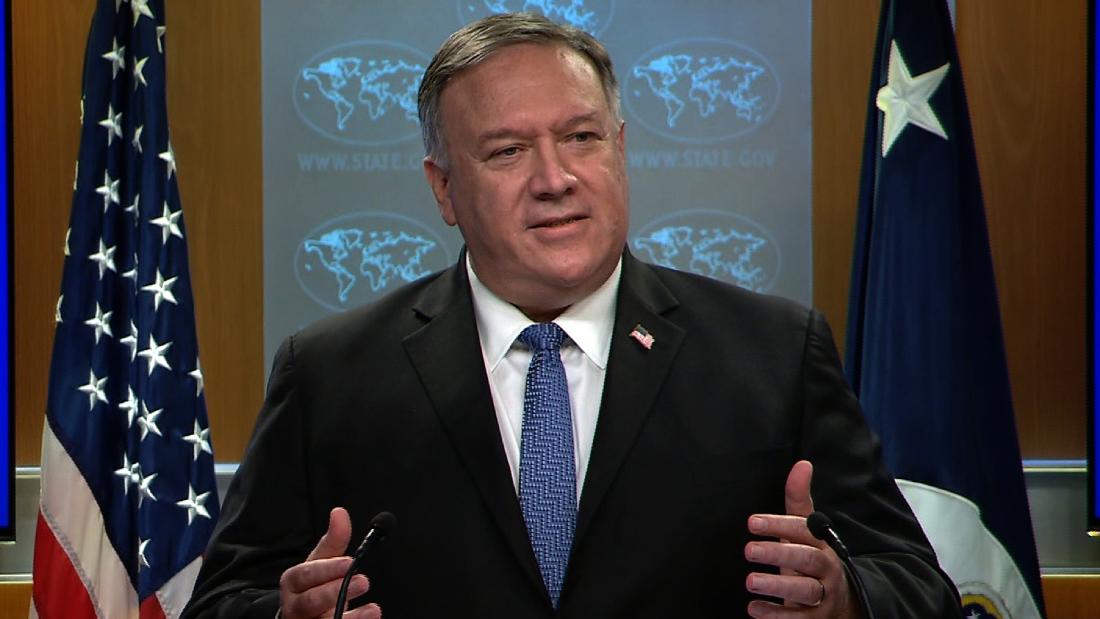Chidi Amuta
At the age of 27, young Mao Tse Tung travelled the long route from his native Hunan province to attend the inaugural Congress of the Communist Party in Shanghai. The date was July 23rd ,1921. From this week and for the next couple of days, the world will witness a series of events to mark the 100th anniversary of the birth of China’s Communist Party. One factor justifies the elaborate ceremonies and pageants of self adulation. Here is a political party that has birthed the world’s only emerging super power in the 21st century. With a membership of less than 95 million in a nation of 1.389 billion people, the party has the distinction of having been in absolute control of China’s state and society for a century.
On the scale of the age of parties, hundred years places the Communist Party in the middle age of great parties of the world. Here is the select ranking: America’s Democratic Party(193 yrs), the Republican Party (167 yrs), UK’s Tory Party(186 yrs), the Labour Party(121 yrs), India’s Bharatiya Janata Party(41 yrs) and South Africa’s African National Congress (109 yrs). Therefore, as the fireworks light up the skies over Beijing and other Chinese cities this week in commemoration of the Centennial of the Communist Party, it is only proper that we reflect on the significance of the survival and achievements of the oldest communist party in the world.
By a curious ruse and practical intent, the world is strolling into what we may describe as the ‘age of China’. The nation that is the undisputed source of the Corona Virus also happens to be the dominant force in the world’s material culture. Nearly everything that supports our daily life – computers, cell phones, textiles, television sets and processed food items- has significant Chinese input. Worldwide, relations with China dominate political discourse. Trade with China is now the prime preoccupation of the World Trade Organization just as the Chinese threat is the most important long term strategic preoccupation of major military powers from the US to Russia and even the United Kingdom. The influx of Chinese students has become a key feature of campus life in leading universities across the world. In the developing world especially Africa, China’s presence is fast replacing the that of other parts of the world. For the first time in human history, Mandarin is the single most sought after new language in the curriculum of schools and colleges. Nearly all the indices of great power emergence are on display in the rise of China.
Not only has the Communist Party endured for a century, it has largely maintained its cohesiveness and identity. It has in tandem been running the affairs of the world’s largest nation and most consequential autocracy. In China’s Leninist one-party polity, the party is the state and the state is the source and repository of all power and authority. It has regulated and controlled the pattern of political representation, the discipline and code of conduct of public officials as well as the pattern of social life of the citizenry.
The Communist Party must be credited with China’s current success streak in its totalitarian grip and control of the Chinese state and society. With a predominantly Leninist socialist ideology, the Communist party dictates everything. It decides and controls everything from national defense and security to foreign and domestic affairs, science and technology policy and even the size of families and the limits of free speech and individual freedom.
The Communist Party has succeeded as China’s engine of political control and policy warehouse. A nation that addresses itself and the world in Mandarin has come to dominate discourse of world affairs in nearly every language. The just concluded G7 Summit in the United Kingdom as well as the NATO Summit in Brussels were dominated by the threat of China as the looming rival of every significant power bloc.
In less than a century, China has emerged from relative obscurity to the pinnacle of global pre-eminence. From a predominantly peasant economy with a huge population of people living in abject poverty in a disease infested environment, China has become the home of the fastest growing middle class in human history and sea of prosperity. It has become the world’s second largest economy with far too many technological and scientific firsts and dominance of nearly every sphere of national attainment. While the age of miracles used to feature more in the zone of biblical fairy tales, today’s real life achievements of China in a relatively short space of time approximates the realm of miracles. It is the triumph of human will and focused governance over the predicaments that daunt other great nations and hold our common humanity hostage.
As we speak, China’s economy has grown by an unbelievable average of 18% in the first half of 2021 in the immediate post-Covid period. A fortnight ago, China recorded the vaccination of 1 billion citizens against the Covid-19 virus. It has recorded the miraculous feat of migrating an annual average of 79 million of its citizens from poverty, having freed 790 million from poverty in 10 years. China has a foreign reserve of 3.3 trillion US dollars and the largest standing army (2.2 million active and 500,000 reservists) in the world. China’s huge manufacturing and export power has placed it in the forefront of world trade which it uses to advance its diplomatic interests around the world.
All this is in addition to a phenomenal spate of infrastructure transformations. Thousands of kilometers of state of the art highways and railroads have crisscrossed all parts of China just as high speed trains carry millions of passengers around the expanse of this large country. New airports in major cities have sprang up to connect most parts of mainland China with cities in the rest of the country and elsewhere in the world. Rows of multi modern apartment blocks have sprang up to house millions of former rural and slum dwellers in sparkling new cities where slums used to hold people hostage in miserable dwellings. A massive industrialization revolution has meant the mass migration of people from the rural to urban areas to fill industrial jobs in factories owned mostly by global multinationals attracted initially by China’s initial low cost labour.
China’s phenomenal growth has translated into a global influence that is now hard to ignore. Over and above Russia which poses mostly a strategy military threat to the West, China presents a total threat that cuts across the military, economic, diplomatic and even cultural spheres.
While superintending this phenomenal development frenzy, the Communist Party has itself withstood challenges and internal turbulence without losing its internal coherence and firm hold on the machinery of government and the dynamics of society. It has thus traced the entire trajectory of the history of China, weathering crises and turbulence from the revolution to the era of unbridled communist rule. It has supervised the various post -Mao reforms and guided the nation up to the present era of state controlled free market regime ethos. Through all of these, the Communist party has survived as a stabilizing political force, constantly course correcting along China’s historic path. It has guided the process of nation building, the moulding of a distinctive national identity and the formulation of policies to adapt China to changing circumstances in the world. To have kept over a billion people faithful to its communist ideology in spite of massive economic prosperity and diversification of perspectives and powerful external influences is in itself a measure of the strength and resilience of the Party and the succession of governments it has continued to inspire and guide.
It has not all been a smooth easy ride. There have been anxious moments and trying chapters. The Communist Party has itself been buffeted by winds of corruption and dissidence from within. But the party survived and ensured that China also survived. It weathered the storm of the collapse of the Soviet Union and the demise of international socialism with its own communist identity in tact. Even so, the party also had the onerous task of managing China’s survival of the turbulence of the post –Mao era with the purges and trials of the Gang of Four.
Faced with the challenge of the triumph of the liberal international order and global capitalism, the Communist Party had the resilience to oversee the transformation of China from a pure form centrally planned communist economy to a free market state controlled economy with all the implicit systemic contradictions.
Ordinarily, that world historic transformation would have led to a dilution of the communist ideology of the party and a weakening of the strict one party control of the Communist Party. The Soviet Communist Party did not survive the chaotic experience of multi party democracy in the wake of Gorbachev’s reforms. The result was the demise of the Soviet Union and the independence of its multiple component republics. China was saved this plight by largely homogenous ethnic and national character and the rigidity of its peculiar Leninist order.
Intriguingly, China has managed to remain under strict communist rule in spite of its astronomical economic success and the emergence of an affluent middle class. Ordinarily, economic prosperity should lead to pressure for greater freedom and political liberty. Such pressure, though muted, is evident but has not translated into a mass popular democratic movement. This is precisely because the prevailing communist order is able to guarantee a relatively good life to a fairly even spread of citizens. Above all, it remains ready to crush even the faintest stirrings of popular revolt.
Ideological rigidity and pervasive control contain China’s major weakness. Observers in the liberal democratic West have consistently criticized China’s draconian limitations of individual freedoms of expression and liberty. The general routine crackdowns on dissidents, opposition politicians and intellectuals as well as the suppression of the rights of ethnic minorities have remained the butt of global criticism of China’s human rights record.
For a long time, China’s propaganda machinery has struggled under the burden of Western insistence that China could crumble under its internal autocracy. Of recent, however, major embarrassing episodes such as the Trump inspired January 6th 2021 invasion of the US Capitol have equipped the Chinese propaganda machinery to retort that it is the West and its liberal order that are actually in foreseeable decline.
However, the existence of a free and democratic Hong Kong and a semi autonomous Taiwan pose major challenges to the resilience of the Communist Party. With the peculiar historical origins of these two outposts, the Communist Party has to learn how to balance the Communist ethos of mainland China with two wealthy, powerful and semi autonomous outposts under its sovereign control.
Even on this celebratory occasion, China’s hilarious mood cannot be total. It now has an ageing population with the attendant high costs of healthcare and old age benefits. Foreign manufacturers initially attracted by low labour costs are beginning to exit as workers demand higher wages. Unemployment in urban areas is increasing. Prosperity has emboldened more freedom of expression and therefore political dissidence. The Communist Party has its work well cut out in the years ahead.
If indeed China was beginning to soften under the pressure of the international liberal order, that trend has recently been reversed with the emergence of Xi Jiping as leader. Under the inscrutable Xi, China is witnessing a major resurgence as a techno-autocratic state. Xi has returned to Maoist orthodoxy anchored on a feeling that China is constantly besieged by internal and external enemies. He has returned to a national fixation with secrecy and a desire to regulate everything. He is embarking on a new spate of endless re-education and rectification and an insistence that the ‘party controls the gun’. Xi has renewed the Communist Party’s belief that you do not get the best of people when you allow them unlimited freedom. Instead, almost every aspect of human life requires oversight and intervention. In his steely fascination with control, Xi is readying China for a global role but as a strong world power. He has signaled this role by removing the term limit on his tenure. His speech a few days ago to mark the CCP centenary celebrations is a clear indication of this new direction.
China under the Communist Party has recorded impressive development in the last hundred years. The next hundred years may be defined by the struggle to manage the precarious consequences of prosperity and global pre eminence. China’s emergence as a global power is not coming in a vacuum. The United States remains the world’s pre-eminent super power and will do everything to remain on top.
This means that henceforth, China’s every move in strategic spheres will be marked. That is already happening in the military and economic spheres. China’s military presence in the Asia Pacific region has become a challenge to the US’s prior strategic advantages in the Asia Pacific region. Specifically, the increasing expansion of Chinese Influence in the South China Sea, including the building of a military base and forward operational air base island, has become a major strategic concern for Washington in recent years. Similarly, China’s relations with its neighbors especially India has come under greater scrutiny and could inspire an alliance of nations bound by the perception of China as a common enemy. Similarly, trade and tariff policies targeted at curtailing China’s advantages will increase among the United States and its allies including the European Union and Japan. Clearly, then, the next hundred years will see China struggling with the consequences of great power arrival, contest and global importance.
In its newfound prosperity and economic eminence, China has found a new voice and unique stature in the world and is forging ahead to press its advantages in many regions of the world. In Africa, for instance, China has become the source of new credits mostly for infrastructure development. This development is coming at a time when aid and support from the West have become severely constrained. Chinese credit and investment in Africa may be coming at concessionary rates but the long term drawbacks have begun to show up in the inability of some African countries to abide by the small prints of some of these agreements. Overall, China is relentlessly pushing ahead to position itself as a friend of Africa. The most illustrious testimony of this public relations stunt is China’s donation of the new headquarters of the African Union in Addis Ababa, an edifice that has however been serving as a listening post for Chinese intelligence on Africa’s diplomatic communications.
For us in Nigeria, the relevance of the looming Age of China resides in our increasing national weakness and vulnerability to decisions made elsewhere in the world. Although we may not want to be directly concerned with what happens in China, the decisions that are taken in the chambers of China’s Communist Party in Beijing are likely to fundamentally affect the lives and livelihood of Nigerians who find their government increasingly entangled with seductive loans from China for railroad and airport development and expansion.
More directly, the critical questions that ought to worry us as we felicitate with the Chinese on the centennial of the Communist Party are deeply embedded in our own quirky political party system. Irrespective of ideology, can we develop a democracy through the vehicle of our ‘seasonal’ political parties? Can political parties with brief life spans be vehicles for lasting national development? Can parties that define themselves in terms of limited personal ambitions, narrow group interests and transient objectives be relied upon to build a nation in perpetuity or achieve inclusive development?
China’s Communist Party is older than the modern Chinese state. Is there any Nigerian political party that is half the age of the Nigerian nation state?
